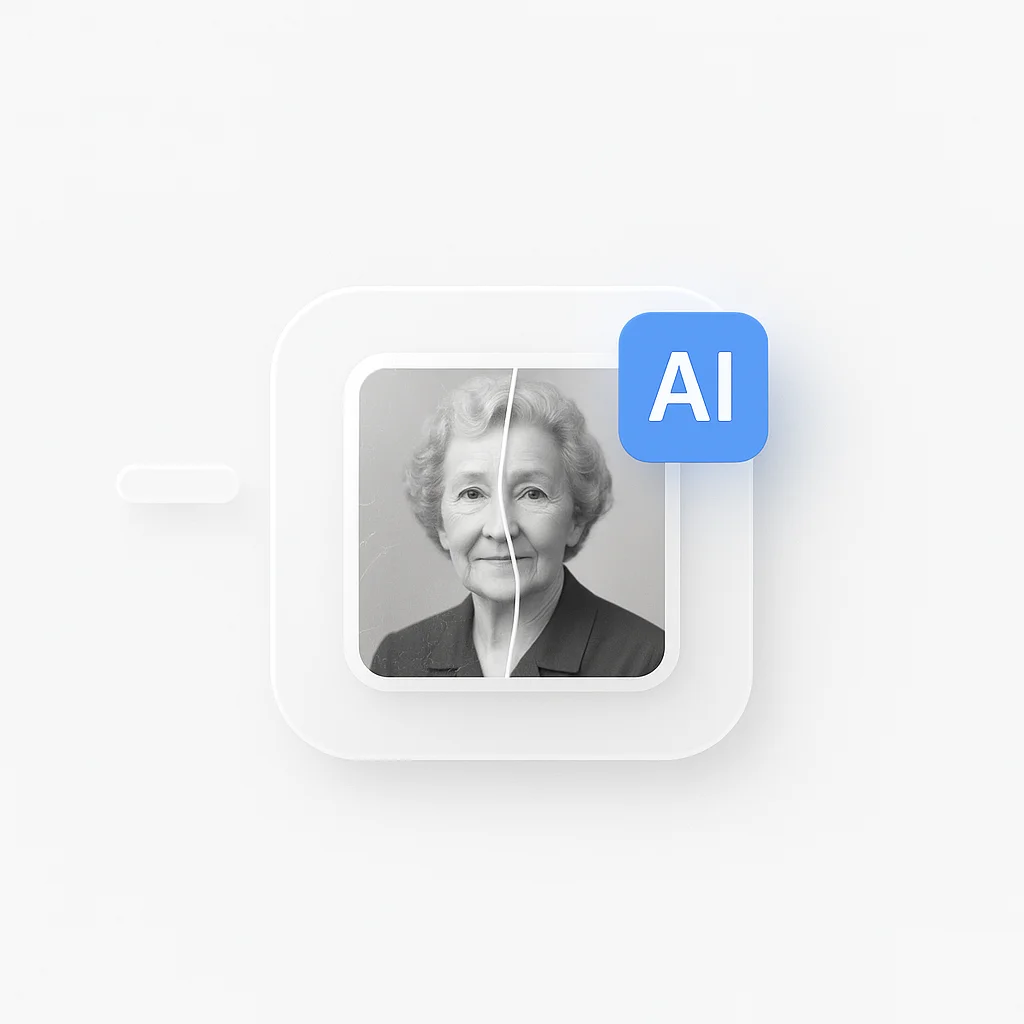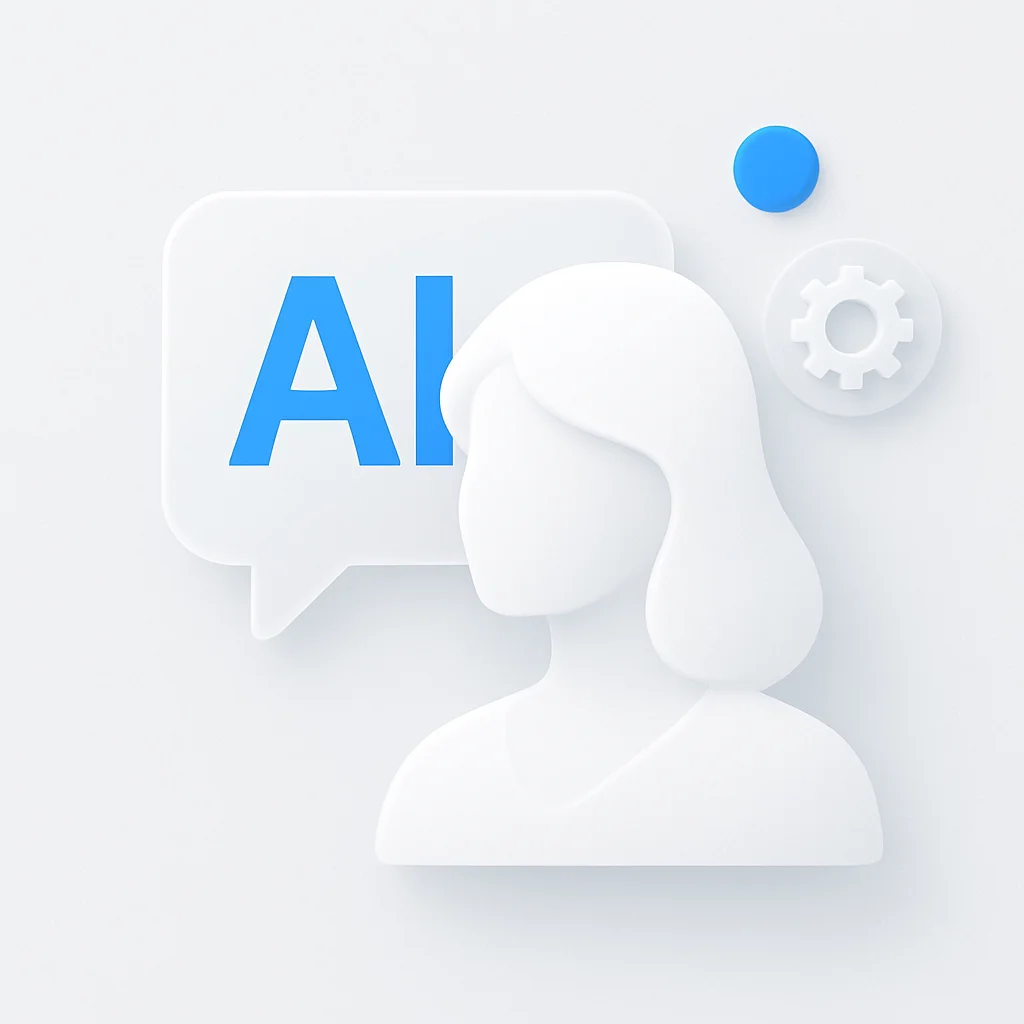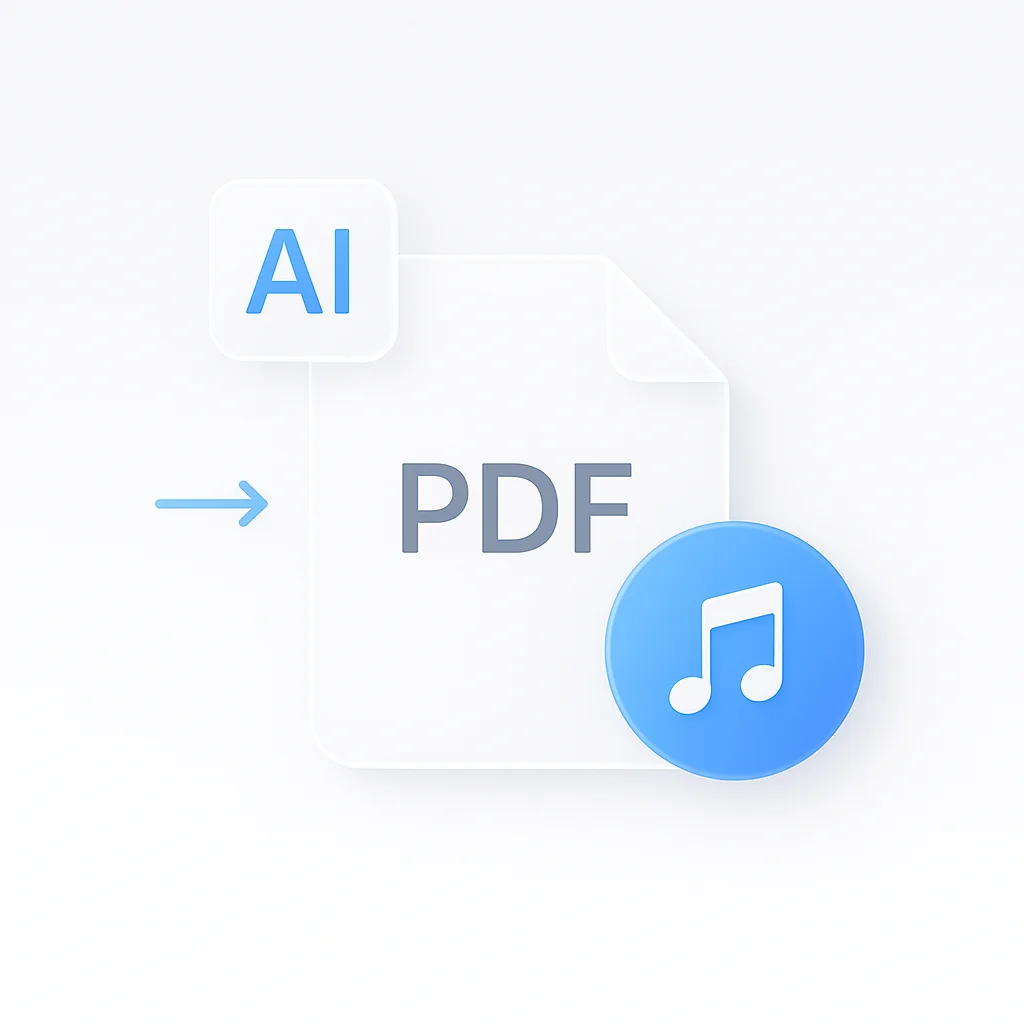Do you have a shoebox full of faded, scratched, or torn family photos? In 2025, you don’t need to be a Photoshop expert to restore them. Powerful AI photo restoration tools can bring your cherished memories back to life in seconds, right from your browser.
This guide covers the best free AI photo restoration tools that work online and, most importantly, don’t add watermarks to your finished photos. We’ve tested the top 10 options to help you fix scratches, colorize black and white images, and enhance image quality without spending a cent.
🎯 Quick Comparison
Complete restoration toolkit
Advanced facial enhancement
100M+ downloads
Industry standard
How We Tested - Ranked the Best AI Photo Restoration Tools
Our 2025 review criteria focused on real-world performance across different photo types and damage levels. We tested each tool with:
- Restoration Quality: How effectively it removes scratches, fixes tears, and reduces noise
- Colorization Accuracy: Whether black and white photos receive realistic, natural colors
- Ease of Use: Interface simplicity and no-login options
- No Watermark Guarantee: Clean exports without branding on free plans
- Speed - Performance: Processing time for standard photo sizes
Each tool was evaluated using identical test photos: a 1950s family portrait with scratches, a faded color photo from the 1980s, and a torn black-and-white image from the 1940s.
Top 10 AI Photo Restoration Tools of 2025
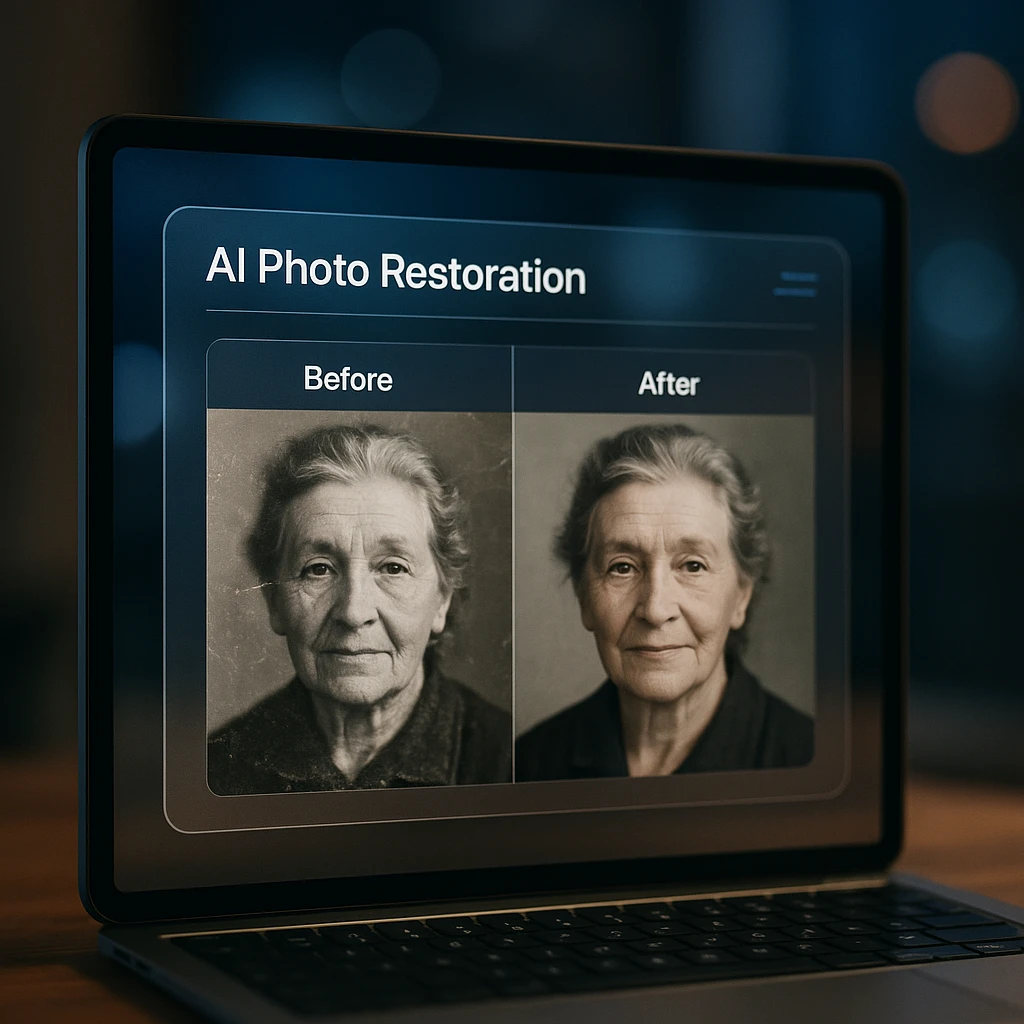
1. VanceAI Photo Restorer: Best All-in-One AI Toolkit
Why It Stands Out: VanceAI combines multiple AI models into a comprehensive restoration platform that handles everything from scratch removal to face enhancement. The platform’s strength lies in its ability to intelligently analyze each photo and apply the most appropriate restoration techniques automatically.
Key Features:
- Advanced scratch and tear repair using ML algorithms
- Intelligent noise reduction for grainy vintage photos
- Face enhancement specifically trained on portrait photography
- Batch processing for multiple images simultaneously
- Format support for JPEG, PNG, WEBP, and BMP files
- Cloud-based processing with no software installation required
Performance Analysis: VanceAI excels at preserving facial features while removing age-related damage, making it particularly effective for family photos and portraits. The platform’s AI has been trained on millions of historical photographs, allowing it to understand typical damage patterns and restoration needs.
Pros
- Comprehensive toolkit in one platform
- Excellent face restoration capabilities
- No software installation required
- Maintains high image quality during processing
- Regular AI model updates and improvements
- Professional-grade results with minimal effort
Cons
- Limited free credits (3 per month)
- Processing can be slow during peak times
- Requires internet connection for all features
- Some advanced features locked behind premium plans
Pricing: Free plan with 3 monthly credits; Premium plans start at $9.90/month for 200 credits.
Best For: Users who want comprehensive restoration capabilities without dealing with multiple specialized tools.
2. MyHeritage Photo Enhancer: Best for Enhancing Faces and Viral Features
Why It Stands Out: MyHeritage gained massive popularity not just for photo restoration, but for its viral “Deep Nostalgia” feature that animates old family photos. Their AI specifically focuses on facial enhancement, making it unmatched for portrait restoration.
Key Features:
- Superior facial detail recovery and enhancement
- Deep Nostalgia animation feature for viral content creation
- Automatic color correction optimized for skin tones
- Eye clarity enhancement and blemish removal
- Hair texture restoration and detail recovery
- Integration with genealogy research tools
Viral Appeal: The Deep Nostalgia feature has generated millions of social media shares, allowing users to create animated versions of historical family photos that appear to blink, smile, and move naturally.
Pros
- Exceptional facial enhancement capabilities
- Viral animation features for social sharing
- No account required for basic restoration
- Consistently high-quality results
- Strong reputation and user base
- Integration with family history research
Cons
- Limited to facial enhancement focus
- Fewer credits for free users
- Animation feature can be unsettling to some users
- Less effective for landscape or object restoration
Pricing: Free plan with 5 enhancements; Premium subscriptions start at $12.95/month.
Best For: Family photo restoration and users who want to create engaging animated content from old portraits.
3. Remini: The Most Popular Mobile App
Why It Stands Out: With over 100 million downloads, Remini is the undisputed leader in mobile photo restoration. The app’s strength lies in its simplicity and powerful face unblurring capabilities that work directly from your phone’s camera roll.
Key Features:
- Optimized for mobile photo processing and camera roll integration
- Advanced face unblurring and detail enhancement
- Batch restoration for multiple images simultaneously
- Social media integration for instant sharing
- Offline processing capabilities for privacy
- Background noise reduction and artifact removal
Mobile Excellence: Remini’s AI has been specifically optimized for the types of photos typically found on mobile devices, including low-resolution images, blurry selfies, and compressed social media photos.
Pros
- Excellent mobile optimization and user experience
- Powerful face unblurring capabilities
- Works offline for privacy-conscious users
- Regular updates with new AI improvements
- Large, active user community
- Intuitive interface perfect for beginners
Cons
- Limited free usage (5 restorations daily)
- Mobile-only platform with no desktop version
- Can over-enhance some images
- Premium subscription required for unlimited use
Pricing: Free with daily limits; Pro subscription at $4.99/week or $35.99/year.
Best For: Mobile users who want professional restoration results without desktop software complexity.
4. Adobe Photoshop (Neural Filters): The Professional Standard
Why It Stands Out: Adobe Photoshop’s Neural Filters represent the cutting edge of AI-powered photo restoration for professionals. With precise control and unmatched quality, it’s the tool of choice for professional photo editors and serious enthusiasts.
Key Features:
- Advanced Neural Filters for restoration and colorization
- Precise manual control over all restoration aspects
- Professional-grade tools for complex restoration projects
- Integration with Adobe Creative Cloud ecosystem
- Support for RAW files and professional formats
- Advanced layer system for non-destructive editing
Professional Capabilities: Neural Filters include specialized tools for skin smoothing, style transfer, smart portrait enhancement, and historically accurate colorization with full manual override capabilities.
Pros
- Industry-standard professional tools
- Unmatched control and precision
- Advanced AI combined with manual editing
- Extensive tutorial and learning resources
- Integration with professional workflows
- Continuous updates and new features
Cons
- Steep learning curve for beginners
- Expensive subscription model
- Requires powerful computer hardware
- Overkill for simple restoration tasks
Pricing: Part of Adobe Creative Cloud starting at $20.99/month for Photoshop only.
Best For: Professional photographers, graphic designers, and serious hobbyists who need maximum control and quality.
5. Hotpot.ai: Best for Specific, Free Tasks
Why It Stands Out: Hotpot.ai’s approach of offering separate, dedicated tools for specific restoration tasks often produces superior results compared to all-in-one solutions. Each tool is highly specialized and optimized for its particular function.
Key Features:
- Separate AI Picture Colorizer for black and white photos
- Dedicated Picture Restorer for damage repair
- Specialized Picture Enlarger for resolution enhancement
- Old Photo Filter for age-related discoloration removal
- Art Generator for creative photo transformations
- Background Remover for isolation tasks
Specialized Approach: Each tool uses AI models specifically trained for individual tasks, resulting in more accurate and natural-looking results than generalized restoration tools.
Pros
- Specialized tools for superior specific results
- Free access to most core features
- No registration required for basic use
- Fast processing with reliable results
- Clean, distraction-free interfaces
- Regular updates with new tools
Cons
- Need multiple tools for comprehensive restoration
- Limited free usage per tool
- Less convenient than all-in-one solutions
- Basic feature set compared to premium tools
Pricing: Free with limited usage; Credit packages start at $5 for 100 credits.
Best For: Users who need specific restoration tasks and prefer specialized tools over comprehensive platforms.
6. Topaz Photo AI: Best for High-Quality Upscaling and Sharpening
Why It Stands Out: Topaz Photo AI is renowned among photographers and enthusiasts for delivering the highest quality image upscaling and sharpening available. It’s the go-to tool for recovering fine details from low-resolution vintage photographs.
Key Features:
- Industry-leading AI upscaling up to 6x resolution
- Advanced sharpening algorithms for blurry photos
- Noise reduction optimized for various image types
- RAW file support for professional workflows
- Batch processing for large photo collections
- Desktop application for offline processing
Technical Excellence: Topaz uses proprietary AI models trained specifically on millions of image pairs to understand how to reconstruct missing details and enhance image quality beyond what traditional methods can achieve.
Pros
- Exceptional upscaling quality and detail recovery
- Offline desktop processing for privacy
- Professional-grade features and controls
- Regular AI model updates and improvements
- Excellent for print-quality enlargements
- Strong reputation among professionals
Cons
- Higher price point for premium features
- Requires powerful computer hardware
- Steeper learning curve than simple online tools
- Processing can be time-consuming for large files
Pricing: One-time purchase at $199 with free updates for one year.
Best For: Serious photographers and professionals who need the highest quality upscaling and detail recovery.
7. Palette.fm: Best Specialist for AI Colorization
Why It Stands Out: Palette.fm has gained viral recognition for producing the most natural and historically accurate colorization results available. The platform specializes exclusively in bringing black and white photos to life with realistic colors.
Key Features:
- Multiple AI color palette options for different time periods
- Historical accuracy mode for period-appropriate colors
- Advanced skin tone rendering and hair color detection
- Regional colorization for selective color application
- Comparison tools to preview before and after results
- AI prompt system for custom color preferences
Colorization Mastery: The platform’s AI has been trained on millions of historically accurate color photographs, allowing it to understand appropriate colors for different time periods, clothing styles, and environmental contexts.
Pros
- Best-in-class colorization accuracy and realism
- Multiple historically appropriate color palettes
- Advanced manual override capabilities
- Excellent for vintage family photographs
- Regular improvements to color accuracy
- User-friendly interface with preview options
Cons
- Limited to colorization only
- Doesn't handle damage repair or enhancement
- Fewer free credits than general restoration tools
- Requires good source image quality for best results
Pricing: Free plan with 3 colorizations; Premium plans start at $8/month.
Best For: Users focused specifically on bringing black and white photos to life with historically accurate, natural-looking colors.
8. Fotor Photo Enhancer: Best for Quick, One-Click Enhancements
Why It Stands Out: Fotor’s AI enhancer is widely popular for its simplicity and speed. As part of a comprehensive photo editing platform, it provides quick one-click solutions for basic photo restoration without complex settings or lengthy processing times.
Key Features:
- One-click automatic enhancement and optimization
- Brightness, contrast, and color saturation improvements
- Basic scratch detection and removal capabilities
- Integration with full photo editing suite
- Batch processing for multiple images
- Social media optimization presets
Simplicity Focus: Fotor excels at making subtle but effective improvements to old photos quickly, making it ideal for users who want better results without learning complex restoration techniques.
Pros
- Extremely simple one-click operation
- Fast processing with immediate results
- Part of comprehensive editing platform
- Good for batch processing multiple photos
- No learning curve required
- Affordable pricing for basic features
Cons
- Limited control over restoration process
- Basic features compared to specialized tools
- Watermarks on free plan for some features
- Less effective for severely damaged photos
Pricing: Free with limitations; Pro plans start at $8.99/month.
Best For: Casual users who want quick improvements to old photos without complexity or learning specialized techniques.
9. CapCut: Trending for Social Media and Animation
Why It Stands Out: While primarily a video editor, CapCut’s “Photo Animator” and enhancement features have become extremely popular among TikTok and Instagram users for creating engaging content from old photos. It bridges the gap between photo restoration and social media content creation.
Key Features:
- Photo animation effects for social media content
- Basic AI enhancement and quality improvement
- Integration with video editing for multimedia projects
- Trendy effects and filters for modern aesthetics
- Social media format optimization
- Collaborative features for team projects
Social Media Focus: CapCut excels at making old photos suitable for modern social media platforms, with features specifically designed for viral content creation and engagement.
Pros
- Perfect for social media content creation
- Animation features make old photos engaging
- Free with extensive feature set
- Trending effects and modern aesthetics
- Easy sharing to social platforms
- Regular updates with new effects
Cons
- Limited traditional restoration capabilities
- Focused more on effects than quality enhancement
- Requires mobile app for best experience
- May over-stylize historical photos
Pricing: Free with premium effects available through in-app purchases.
Best For: Social media creators who want to transform old photos into engaging, shareable content for TikTok, Instagram, and other platforms.
10. Photomyne: Best for Scanning and Comprehensive Restoration
Why It Stands Out: Photomyne is unique because it starts with the scanning process, providing a complete solution from physical photo digitization through AI restoration. It’s designed for users who want to digitize entire family photo albums with built-in enhancement capabilities.
Key Features:
- Advanced photo scanning with automatic edge detection
- Bulk scanning for entire photo albums
- Built-in AI restoration and colorization
- Automatic photo organization and tagging
- Family sharing and collaboration features
- Cloud storage and backup integration
Complete Workflow: Photomyne handles the entire process from physical photo to enhanced digital archive, making it ideal for comprehensive family photo preservation projects.
Pros
- Complete scanning to restoration workflow
- Excellent for digitizing large photo collections
- Built-in organization and sharing features
- Good for family collaboration projects
- Automatic enhancement during scanning
- Cloud backup prevents loss of precious memories
Cons
- Primarily mobile-based scanning
- Restoration features less advanced than specialists
- Requires subscription for full feature access
- Scanning quality depends on mobile camera
Pricing: Free basic scanning; Premium plans start at $5.99/month for enhanced features and storage.
Best For: Users who need to digitize large collections of physical photos and want basic restoration capabilities in a single workflow.
How to Restore an Old Photo in 3 Easy Steps
Step 1: Prepare Your Physical Photo
For optimal results, create a high-quality digital copy of your physical photo:
- Scanner Method: Use a flatbed scanner at 600 DPI or higher
- Phone Method: Use Google PhotoScan or similar apps that eliminate glare
- Camera Method: Photograph in bright, even lighting without shadows
Pro Tip: Clean the photo gently with a soft cloth before scanning to remove surface dust and fingerprints.
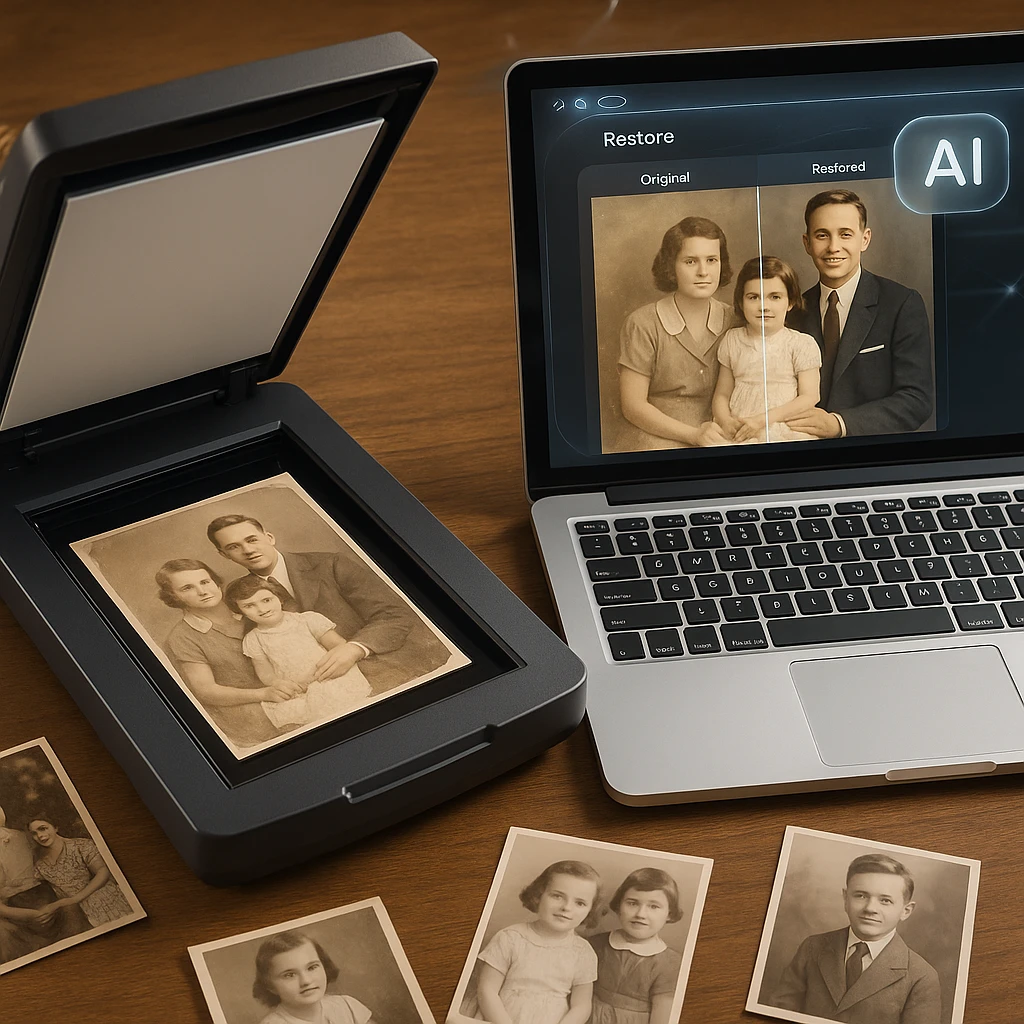
Step 2: Choose Your Restoration Tool
Select the appropriate tool based on your photo’s specific needs:
- Heavy damage (scratches, tears): VanceAI Photo Restorer
- Portrait photos: MyHeritage Photo Enhancer
- Black and white colorization: Palette.fm
- Quick mobile editing: Remini app
- Professional work: Adobe Photoshop Neural Filters
- High-quality upscaling: Topaz Photo AI
Step 3: Apply AI Restoration - Download
- Upload your scanned image to the chosen platform
- Select the appropriate restoration function
- Allow the AI to process (typically 30-90 seconds)
- Preview the results and make adjustments if available
- Download the watermark-free restored image
For severely damaged photos, consider using multiple tools in sequence - start with scratch removal, then apply colorization, and finish with general enhancement. If you’re working on video content that includes old photos, AI Summarizer can help create compelling narratives about your restoration projects.
📱 Mobile Workflow
Privacy Considerations for Family Photos
When uploading precious family photos to online services, privacy protection becomes crucial. Here’s what to look for:
Security Indicators:
- SSL encryption (https://) during upload
- Clear data deletion policies
- No ownership claims over uploaded images
- GDPR compliance for European users
Recommended Privacy Practices:
- Check each platform’s privacy policy before uploading
- Use tools that delete images from servers after processing
- Consider watermarking family photos before upload
- Keep original files backed up separately
- Document your restoration workflow with Audio Notetaker for future reference
For highly sensitive or irreplaceable photos, consider using downloadable software like GIMP with AI plugins rather than online services. When recording family stories or creating digital archives, tools like AI Note Taker can help document the history behind restored photos.
Advanced Restoration Techniques
Combining Multiple AI Tools
For complex restoration projects, using multiple tools strategically produces superior results:
- Initial Repair: Use VanceAI for scratch and tear removal
- Face Enhancement: Apply MyHeritage for portrait details
- Colorization: Finish with Palette.fm for realistic colors
- Final Polish: Use Fotor for brightness and contrast optimization
Handling Specific Damage Types
Water Damage: Start with noise reduction tools before attempting colorization Faded Colors: Use color restoration before applying enhancement filters Torn Photos: Repair tears first, then enhance overall image quality Yellowed Photos: Apply color correction before other enhancements
When documenting your restoration process or creating tutorials, Video Ask AI can help analyze successful restoration techniques from video demonstrations. For sharing your restored photos in presentations, Convert Video to PDF can help create professional documentation of your restoration work.
FAQ: Your Top Photo Restoration Questions Answered
What is the best AI to fix old, blurry pictures?
For blurry photo repair, Topaz Photo AI provides the most advanced sharpening algorithms specifically designed for detail recovery. VanceAI Photo Restorer offers excellent all-around capabilities, while MyHeritage excels at facial detail recovery and eye sharpening in portraits.
Can AI really remove scratches and tears from photos?
Yes, modern AI can effectively remove most scratches and tears from digital photos. The technology works by analyzing surrounding pixels and intelligently filling damaged areas. VanceAI and Hotpot.ai show particularly strong results for this type of restoration, with Adobe Photoshop’s Neural Filters offering the most precise control for complex damage.
How can I restore photos without watermarks for free?
Several tools offer watermark-free exports on their free plans: VanceAI provides 3 monthly credits, MyHeritage offers 5 enhancements, Hotpot.ai gives 2-3 uses per tool, and Palette.fm includes 3 free colorizations. The key is understanding each platform’s free tier limitations.
Is there an AI that can animate old photos?
MyHeritage’s Deep Nostalgia feature can animate faces in restored photos, creating short video clips that show subtle movements like blinking and smiling. This feature gained viral popularity on social media for bringing historical photos to life. CapCut also offers animation features for social media content creation.
What’s the best way to get high-quality scans of old photos?
Use a flatbed scanner at 600-1200 DPI for archival quality, or try Google PhotoScan app for mobile scanning that eliminates glare. Clean photos gently before scanning and scan in color even for black-and-white originals to preserve aging details that AI can use for better restoration. For organizing and analyzing large collections of restored photos, Video Analyzer can help process video slideshows of your family photo collections.
Can AI restore severely damaged photos?
AI works best on photos with moderate damage. For severely damaged photos with large missing sections, AI may struggle to recreate lost details accurately. In these cases, combining AI restoration with manual photo editing in tools like Adobe Photoshop often produces the best results. Topaz Photo AI and VanceAI handle significant damage better than simpler tools.
Which tool is best for mobile photo restoration?
Remini leads mobile photo restoration with over 100 million downloads and excellent optimization for phone cameras. Photomyne offers a complete mobile workflow from scanning to restoration, while CapCut excels at creating social media content from restored photos.
How much do professional photo restoration tools cost?
Costs vary significantly: Adobe Photoshop requires a $20.99/month subscription, Topaz Photo AI costs $199 as a one-time purchase, while cloud-based services like VanceAI start at $9.90/month. Many platforms offer free trials or credits to test features before committing.
Can I use multiple AI tools on the same photo?
Yes, using multiple specialized tools often produces superior results. A common workflow involves using VanceAI for damage repair, Palette.fm for colorization, and Topaz Photo AI for final sharpening. Just ensure you maintain the highest quality version throughout the process.
What file formats work best for AI photo restoration?
Most AI tools accept JPEG, PNG, TIFF, and BMP formats. For best results, use uncompressed formats like TIFF or PNG when possible. Adobe Photoshop and Topaz Photo AI also support RAW files for professional workflows. Avoid heavily compressed JPEGs as they may limit restoration quality.
Bringing Your Memories Back to Life
AI photo restoration has democratized what was once an expensive, time-intensive process requiring professional expertise. These ten tools represent the best options available in 2025, each excelling in different aspects of photo restoration.
If you’re looking for a professional touch beyond automated AI tools, the photo restoration service offered by FixThePhoto remains a trusted option for complex cases where manual editing expertise is needed.
For most users, VanceAI Photo Restorer provides the best overall experience with its comprehensive toolkit and generous free tier. MyHeritage dominates portrait enhancement and viral content creation, while Remini leads mobile restoration. Adobe Photoshop sets the professional standard, Topaz Photo AI delivers unmatched upscaling quality, and Palette.fm offers the most accurate colorization available.
For beginners: Start with VanceAI or MyHeritage for user-friendly interfaces and excellent results.
For mobile users: Remini and Photomyne offer the best mobile experiences with different strengths.
For professionals: Adobe Photoshop and Topaz Photo AI provide the highest quality and most control.
For social media: CapCut and MyHeritage excel at creating engaging, shareable content.
For colorization specialists: Palette.fm offers the most natural and historically accurate results.
The key to successful photo restoration lies in choosing the right tool for your specific needs and understanding each platform’s strengths. With these powerful AI tools, you can repair decades of damage in seconds and preserve your family’s visual history for future generations.
Whether you’re digitizing a family archive or restoring a single precious photo, these tools ensure that no memory is too old or damaged to save. Start with the least damaged photos to familiarize yourself with each tool’s interface, then gradually work on more challenging restoration projects as you gain confidence with the technology. For creating compelling video presentations of your restored family photos, Audio Summarizer can help generate narrations that bring your family history to life.
